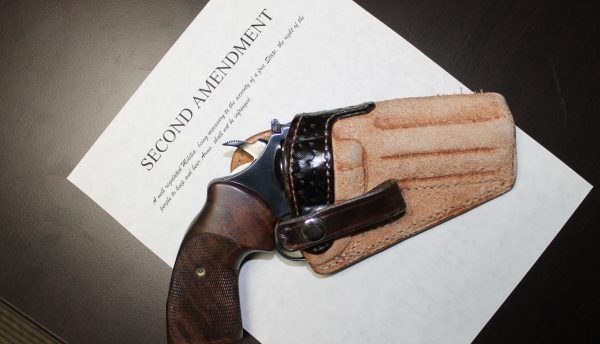
By Dave Workman
Editor-in-Chief
Gun control legislation covering the so-called “red flag” issue, a three-day waiting period on gun purchases and “expanded” background checks died in the New Hampshire State Senate Thursday when majority Republicans voted against them.
According to New Hampshire Public Radio (NHPR), there was more than an hour of debate on the Extreme Risk Protection Order (ERPO) red flag bill. Discussion was clearly along party lines, with Democrats arguing the ERPO bill “could help prevent suicides”—which is a common argument wherever such laws are proposed, though there does not appear to be conclusive research confirming this, according to CNN—while Republicans said the legislation could result in violations of constitutional rights.
WMUR News is reporting that Democrat Sen. Debra Altschiller supported the red flag bill, SB360, intimating it might help prevent tragedies like last year’s shooting in Lewiston, Maine.
“An extreme risk protective order like SB360 would have helped the signs of impending danger were everywhere,” she reportedly stated.
However, Republican Sen. Sharon Carson was concerned that someone subjected to an ERPO would have to get an attorney to get his/her guns back.
“When a defendant has had their weapons confiscated they would have to obtain legal counsel in order to retrieve them back. This is a direct cost to the accused, not the accuser,” she said.
And Sen. Daryl Abbas (R-Salem) noted the bill “focuses solely on disarming the person but doesn’t actually offer them any other help.” He said the mental health issue should be addressed, rather than just disarming someone.
The Everytown for Gun Safety gun prohibition lobbying group contends New Hampshire has weak gun laws, making it a failure in terms of gun control. But a look at data from the Centers for Disease Control and Prevention (CDC) shows neighboring states with stricter gun control laws actually have higher body counts when it comes to gun-related deaths.
In 2021, according to the CDC and World Population Review, New Hampshire logged 123 gun-related deaths while Massachusetts reported 247 fatalities and Connecticut logged 248 deaths. Vermont which also has “lax” gun laws and permitless carry, posted 83 gun-related deaths that year.
In an effort to explain the disparity, Everytown claims on its website, “The robust laws in New England provide a partial explanation for New Hampshire’s low gun violence rate relative to its weak gun policies, as the state is protected by its neighbors.”
Meanwhile, CNN noted in its report on “red flag” law effectiveness, “In a 2020 review of the data on the effects of various gun policies, researchers at the RAND Corporation took note of the positive findings out of Indiana but said the overall evidence on the effect of red flag laws on both total suicides and firearm suicides is ‘inconclusive.’ The RAND report called for additional study on the subject.”
Late last year, the Second Amendment Foundation announced a legal effort to challenge ERPO laws. The program is called “Capture the Flag,” targeting laws “that deprive individuals of their Right to Keep and Bear Arms based on evidentiary standards that offend constitutional notions.”
“The Initiative’s inaugural case, Willey v. Brown, was filed in Maryland on August 22, 2023,” SAF explains. “Donald Willey, a decorated Marine Corps combat veteran was victimized by Maryland’s lax evidentiary standard required for the issuance of a temporary extreme risk protection order, and as a result, deprived of his Second Amendment rights stemming from a vindictive County official’s determination to punish him. The case is still ongoing.”
The initial target states of the SAF campaign are California, Florida, Maryland, Massachusetts, New Jersey, and Washington.



